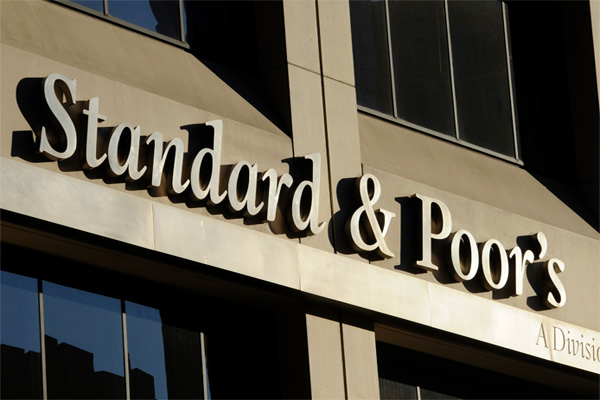Mon 11 2019 08:39:45
Tashkent, Uzbekistan (UzDaily.com) -- S&P Global Ratings raised its long-term issuer credit rating on Uzbekistan-based Orient Finans Bank (OFB) to ‘B’ from ‘B-’ and affirmed the ‘B’ short-term rating. The outlook remains positive.
“The upgrade reflects OFB’s increased capital buffer, which is above our previous assumptions. This is an effect of the bank’s solid financial performance, with strong recurring profits, no dividend distributions, and moderate lending growth over the past two years,” the agency saud.
“We estimate that our risk-adjusted capital (RAC) ratio will have increased to about 13.4% by year-end 2019 (from 10.6% as of year-end 2018), and will be 13.0%-13.2% over the next 12-18 months,” it added. The agency based its forecast on the following key assumptions:
- Loan growth of 3% in 2019 and about 15%-25% growth per year over 2020-2021, partly driven by retail lending.
- Credit costs of 0.9%-1.0% over the next two years.
- Flat net interest margin (NIM) of about 9%, balancing the shift toward more profitable retail lending and increasing competition putting downward pressure on interest rates.
- No capital injection.
- No dividends for 2019 and a 15%-18% payout for 2020-2021.
“We expect OFB’s earnings capacity will remain stable, with a return on average equity of 23%-27%, which will support the bank’s current capitalization levels over the next 18 months. We expect the local capital adequacy ratio will remain above 16% over the next 18 months, compared with the 13% regulatory minimum,” the agency noted.
“We positively note that OFB has exhibited quite cautious lending growth since 2018 (materially lower than the peer and market average) and continues to demonstrate good asset-quality metrics. That said, there is high historical performance volatility and currently a limited track record of sustainable organic growth. Furthermore, we take into account that recent expansion in retail lending, still an untested area for the bank, could result in an accumulation of problem loans while the loan portfolio expands. We also note that the bank’s lending concentration remains high compared with local peers’. The top-20 group of borrowers accounted for 60% of OFB’s loan portfolio as of Sept. 1, 2019, compared with about 40% for peers,” the experts of the agency said.
“In addition, the bank’s funding base is less diversified than international peers, with the top-20 depositors accounting for 64% of the total deposit base as of Sept. 1, 2019, but it is in line with the sector average. We already incorporate funding concentrations into our ratings on Uzbekistani banks through our Banking Industry Country Risk Assessment,” S&P Global Ratings said.
“We expect the bank’s funding composition to remain broadly unchanged over the next 18 months and dominated by customer deposits, which accounted for 78% at Oct. 1 2019. OFB maintains a stable funding base, with a stable funding ratio of 138% on Oct. 1, 2019, under local generally accepted accounting principles, up from 124% on Dec. 31, 2018. The loan-to-deposit ratio was 89% and 96% on the same dates. OFB is also prudently managing liquidity, keeping a sufficient cushion to cover potential outflows. Liquid assets (cash and dues from the central bank and other banks, net of restricted cash) covered about 70% of on-demand deposits at Oct. 1, 2019,” it added.
The positive outlook indicates that we could upgrade OFB over the next 12-18 months.
“We could upgrade the bank if it maintains prudent capital management, growth in its lending activities does not lead to a significant increase in credit losses, and we do not observe a return to an opportunistic risk appetite, which would distort the bank’s concentrations and performance. In addition, we would expect no deterioration in the bank’s funding and liquidity position, with no increase in the share of demand deposits in the total funding structure,” S&P Global Ratings said.
S&P Global Ratings could revise the outlook to stable if its saw asset-quality deterioration beyond market-average levels and significantly above our current projections, which would affect the bank’s business stability or capitalization.
“A significant decline in capitalization, either via higher than expected growth in exposures or large dividend distributions, could also lead to an outlook revision or even a downgrade. Furthermore, a material weakness in the funding profile or liquidity position could lead to a negative rating action,” it said.

